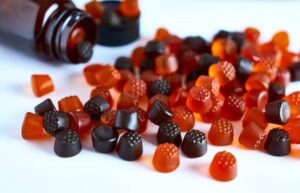When Nate brought the cannabis idea up, I asked him why he was so interested in it. He said it for many reasons, but mostly because of how much it has helped him and the other guys in the NFL.
I asked him how it had helped them, and he said we could either smoke cannabis or take opioids, which are scary and bad for you. He said, "but when you're in the NFL, everything always hurts, and the cannabis helps." He said I'm also a lot calmer and more relaxed. I like the person I am on cannabis better than I like when I'm not.

At this point, he sounded like an addict trying to justify his actions.
However, it was my job to look into it, so I did. I checked the typical source I go to for medical research, the NIH and CDC. I quickly discovered that cannabis had proven to be equal to opioids 64% of the time with chronic and traumatic pain.
I know that 64% on a test isn't perfect. However, in this case, the significance of this was potentially world-changing. If this was true, then well over half the time we give opioids, we could be giving cannabis, and the person would not feel the difference pain-wise. I had research-based proof from the NIH that what Nate told me about pain was 100% factual.
But I was worried we would change one addiction and death path for another. I researched how many people died from cannabis use per year, expecting it to be a pretty significant number. I mean, how many years did we hear about how scary and unsafe cannabis was? I found out we don't have many people that die from a cannabis overdose.
We know how many people die from bee stings and vending machines falling on them, but we can't tell from a cannabis overdose. I find that odd from a country that has spent billions of dollars advertising and making after-school specials about why we need to stay away from it.
I mean, no one died? How could it be less than people killed by vending machines? It turns out that at least one of the reasons is that there are no receptor sites for cannabis in the pons. The pons lives in the brainstem and is responsible for breathing. It's what keeps you breathing when you're asleep and when you're not paying attention to it.
If there are no receptors in the pons, you can consume very high quantities of cannabis and never stop breathing. Oddly enough, there are receptors for both opioids and alcohol in the pons.
The other part that I blew off at first as justification about how Nate would use cannabis, he liked that version of himself more than I had to now look into. I was wrong, in the most glorious fashion, on the pain and safety of cannabis. Who knows, maybe I'm wrong on this as well.
Guess what? I was also very wrong about liking yourself more on cannabis than off. The reason for this is that cannabis happens in suppresses or inhibits a very specific part of the brain called the amygdala. The amygdala holds onto all the bad things about the world: Fear, hate, anger, terror, and the extreme points of anxiety.
So, cannabis has a very real and effective ability to suppress stress and anxiety and, thus, to a degree, negativity. While you hear about cannabis calming people down and making them happier, you also hear about paranoia in some people.
The fun thing is that anxiety suppression and the generation of paranoia happen at different dosages. So, it's entirely possible that a person could have suppression of anxiety at 10mg and start to get paranoid at 80mg. The issue is that when you smoke cannabis, you will get 200mg, so you never knew there was a breakpoint.

As cannabis was being put into gummies with lower mg ratings, we were starting to see more research and information on cannabis than just anecdotal information. This all leads to the idea that if we could find a way to dose out cannabis, it could be a serious option for both pain and anxiety. The biggest issue is that while gummies help, they just have too many drawbacks to really use.
This is the second in a series of articles on cannabis, research, pros and cons on the potential effects for the total wellness of my patients. Stay tuned for more on this important topic.
Check out Chalmers Pillarsofwellness.com for Wellness updates! And ask me any questions you have at questions@chalmerswellness.com. I answer all of them and look forward to hearing from you.
The Chalmers Wellness Stubstack just launched. Comment, Like, Interact with other people on their wellness journey. Communities can make the difference. DrChalmers.substack.com

Dr. Matt Chalmers
Disclaimer: This content is for informational purposes only. Before taking any action based on this information you should first consult with your physician or health care provider. This information is not intended to be a substitute for professional medical advice, diagnosis, or treatment. Always seek the advice of your physician or other qualified health providers with any questions regarding a medical condition, your health, or wellness.

